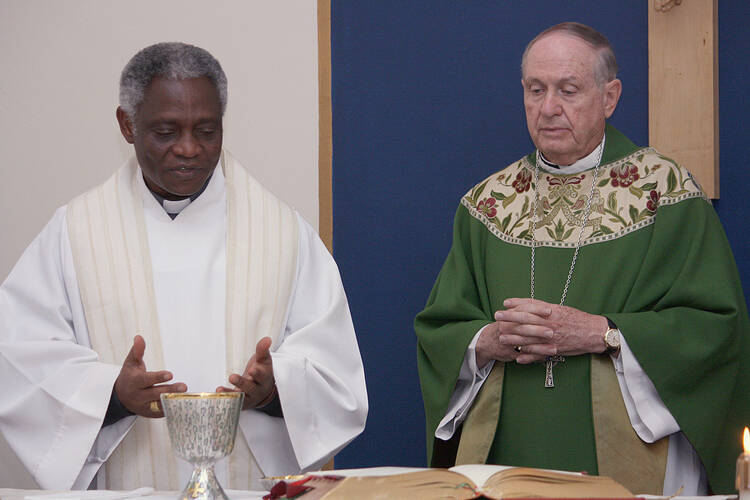Cardinal Peter Turkson of Ghana, president of the Pontifical Council for Justice and Peace, came to Des Moines, Iowa, to receive the World Food Prize on Oct. 16. The cardinal urged groups on both sides of the divide on bio-engineered and genetically modified food to engage in conversation and dialogue. Cardinal Turkson expressed support for biotechnology when it is married to ethics, compassion, morality and prudence. “In Catholic thought, ‘nature’ is neither sacred nor divine, neither to be feared nor to be revered and left untouched,” he said. “Rather, it is a gift offered by the Creator…entrusted to the intelligence and moral responsibility of men and women.” Agricultural practices that respect human dignity and the common good would include environmental monitoring, regulations, universal access and transparency to consumers, he said. “It is hazardous—and ultimately absurd, indeed sinful—to employ biotechnology without the guidance of deeply responsible ethics,” he said. He also warned of the consequences of denying the most impoverished segments of the population access to biotechnology.
Sowing Ethics
Show Comments (
)
Comments are automatically closed two weeks after an article's initial publication. See our comments policy for more.
The latest from america
Fears of state espionage are surfacing again for Centro Prodh and other human rights groups in Mexico after legislators overhauled a suite of laws in security, military, telecommunications and intelligence matters.
We need to pray for the person whose real identity and full story we do not know. Because that is everyone.
Drama can teach us active listening and public speaking, yes; but on a deeper level, it can shape our spiritual disposition.
“Unless there is a change to current practice, our community is slowly being strangled,” said the Rev. Aaron Wessman, vicar general and director of formation for the Glenmary Home Missioners, a small Catholic order ministering in rural America.








